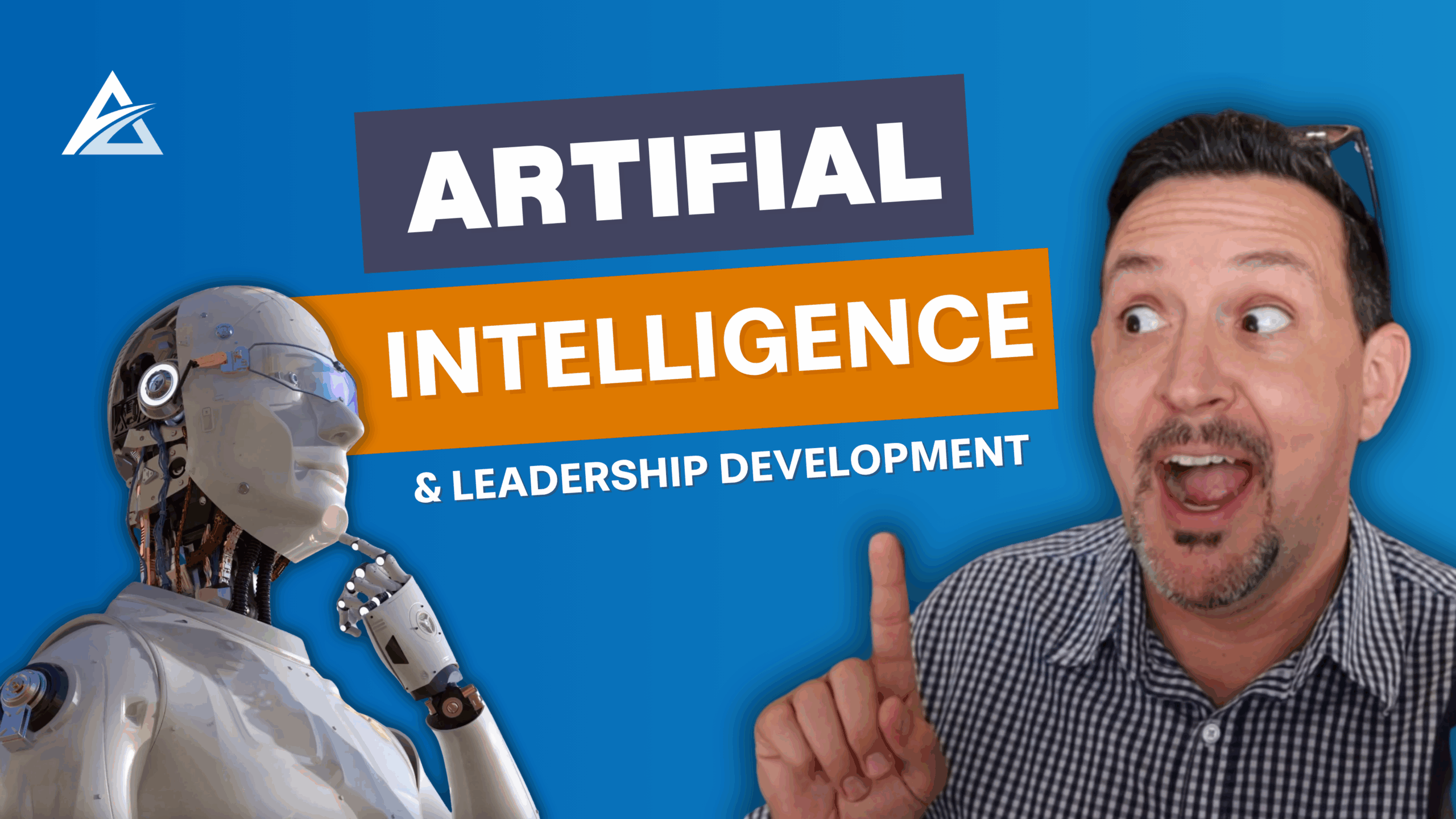If you’re a visual or auditory learner, you can watch the video version of this post here for the same insights in a more interactive format.
We are at a turning point in how we develop leaders.
With AI advancing at a pace that’s faster than most of us can keep up with, the tools and techniques we use to grow, measure, and support leadership are evolving fast. For those of us in executive coaching, organizational consulting, and leadership training, this isn’t just interesting, it’s essential.
Here are five key shifts I’m seeing in how leadership development is changing in response to AI and how forward-thinking leaders can use these changes to their advantage.
1: AI Is Becoming a Conversational Partner
We now have a coach, mirror, and insight engine in our pockets 24/7.
AI tools like ChatGPT and others have made it possible for leaders to reflect, ideate, and role-play tough conversations anytime, anywhere. In fact, here’s how a generative AI assistant described its own impact on leadership development:
“Leadership development is shifting fast. AI will personalize learning, give real-time feedback from real-world communication patterns, and highlight blind spots leaders can’t see on their own.”
Chat GPT
This kind of instant access to insight offers leaders something they’ve never had before: unfiltered feedback and perspective that isn’t limited by human time or energy.
Curious how this applies to your own leadership journey? Explore our Executive Coaching Services to see how we help leaders grow with clarity, confidence, and purpose.
2: Measurement Is Becoming Personalized and Far More Precise
AI is increasing our ability to individualize leadership development. That means training and coaching can now be hyper-targeted, not just by role or title, but by tone, communication style, and even behavioral triggers.
Everything from how a leader gives feedback to the way they show up in Slack, email, or meetings is now measurable. Tools are emerging that analyze voice tone, nonverbal cues, and even the emotional weight of words used in everyday communication. Leaders will soon be evaluated less by how they perform in formal reviews and more by how they lead in the moment.
This shift opens the door to highly adaptive development that can adjust in real time to support better outcomes.
Interested in how AI is shaping creativity on teams? Check out this recent article from Harvard Business Review:https://hbr.org/2024/03/dont-let-gen-ai-limit-your-teams-creativity
3: AI Is Becoming a Member of the Team
What happens when AI isn’t just a tool, but a teammate?
A recent research study from Professor Ethan Mollick and colleagues at Wharton explored just that. They looked at how teams performed when paired with an AI collaborator. The results were compelling:
- Team performance improved, not just in quality of output but in speed.
- AI also increased social cohesion by helping balance team input and encourage more inclusive participation.
Learn more about the research: “How Generative AI Affects Group Work” – Ethan Mollick, Wharton
AI, in this case, helped elevate not just productivity but team dynamics: a key area we focus on in our consulting work at Arc Integrated.
Looking to uncover what’s really driving performance (or holding it back) in your team? Explore our Discovery Experience – a structured process to help leaders identify blind spots, align teams, and lead with greater impact.
4. We’re in a Window of Opportunity As Not Everyone Is Using AI Yet
One trend we’re seeing in our client base at Arc Integrated (which spans industries and company sizes) is this: AI access is universal, but AI utilization is wildly inconsistent.
Some companies are all-in, while others haven’t begun. This discrepancy creates an unusual moment in the market—a level playing field with massive upside for leaders who embrace AI strategically.
There’s a short window where leaders can gain a measurable advantage by learning, implementing, and leveraging the best tools before they become table stakes.
Related Reading: Blog – How Leadership Skills Influence Organizational Values
5: The Age of the Question Has Arrived
With AI making information instantly accessible, our value as leaders is shifting. It’s no longer about what we know – it’s about what we ask.
The best leaders will be those who master the art of asking better questions. Of their teams, their organizations, and themselves. We’re entering an era where prompting well (both technically and strategically) is one of the most important leadership skills.
But this shift goes beyond efficiency. The questions we ask are reflections of the culture we create. AI is simply accelerating our awareness of that.
Want to sharpen one of the most underrated leadership skills? Check out McKinsey’s insights on the importance of asking the right questions and why great questions drive better strategy, innovation, and team performance.
AI is not replacing leadership, it’s reshaping it. It’s inviting us to evolve how we coach, how we train, how we communicate, and how we grow.
If you’re a leader or leadership development professional, now is the time to embrace this shift. Not just to stay relevant, but to unlock the next level of performance in yourself and your team.
Curious how your organization can navigate this transition with confidence? Request a strategy call with us today.
Be well,
Michael



